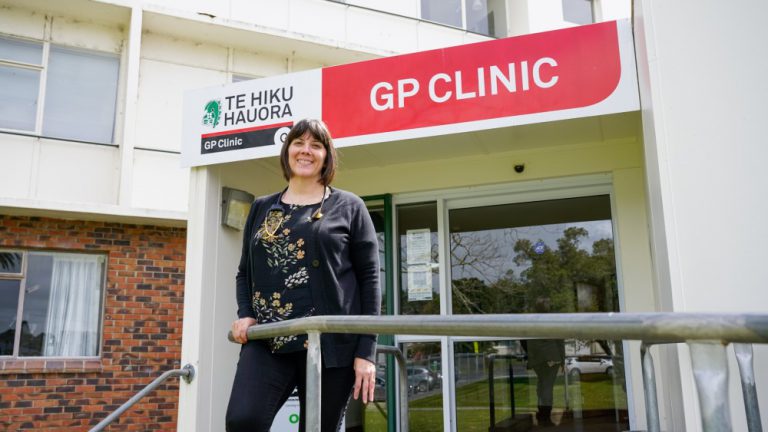
In January 2020, Certified PA Shelly Collins embarked on a unique journey that few other physician assistants are experiencing – only eight, to be exact. Currently practicing in rural New Zealand, Shelly is part of a small group determined to serve the underserved and educate others about the PA profession’s value.
Together with her husband and daughter, Shelly made the nearly 7,000-mile move sight unseen; their only familiarity with their future home came from the internet and movies. They chose to live in a city named Kaitaia, a quiet and rural location known as New Zealand’s most northern town. As a medical professional experienced in the complexities of living and working in rural areas, Shelly was acutely aware of the impact a Certified PA can make in narrowing health care gaps.
“We’re unique in that we can fill gaps wherever we need to be,” said Shelly, who also practiced in Oklahoma and Washington. “PAs are generalists, so whatever comes in, I can see it. I can see that patient and take care of them.”
Most of Shelly’s patients come from Kaitaia’s indigenous Māori community. She works within a network of three clinics that rely on a handful of full-time, permanent medical providers supplemented with locums doctors for a patient population of approximately 13,000. The clinic often treats ailments that would be considered uncommon in the U.S., such as complications from rheumatic fever, early-onset gout, or severe heart failure in a 40-year-old. With a shortage of physicians across New Zealand, the clinics rely on locums to serve short stints before returning to their home countries. Due to a lack of available locums and staff last December, the clinic was forced to turn new patient registrations away temporarily.
In addition to navigating through limited resources and an occasional language barrier, Shelly says one of her biggest challenges is accessibility. Many patients don’t have transportation; one patient recently walked more than seven miles for treatment. Others are hesitant to be seen due to the “stoic” nature common in Māori culture.
“They expect to have hardships, aches, and pains. By the time they come in, they’ll say, ‘Oh, I’ve just been kind of tired for a few days.’ And then it turns out they have advanced-stage cancer, or something serious. By the time they come to see us, they’re really, really sick,” Shelly said. “The patients really need you, and they appreciate you. I can do the smallest thing for them and they’re so appreciative,” she added.
New Zealand allows experienced, NCCPA-certified PAs to practice with limitations, such as being unable to write prescriptions or order advanced imaging. The New Zealand Physician Associate Society (NZPAS), which consists of all eight PAs practicing in New Zealand, is working to secure the formal regulation required to allow PAs to prescribe medication and practice as they would in the United States. According to NZPAS, achieving formal regulatory status will also make it easier for New Zealand doctors to hire Certified PAs.
“We go to every conference we possibly can, give presentations and try to network with clinics and doctors. We submit articles to New Zealand medical journals and sometimes visit actual doctors’ offices to help boost interest in the profession. We are also hoping to visit each district health board in New Zealand, as the district health boards control the funding for each particular health district,” Shelly said.
NZPAS is currently working through the application process for Physician Associate regulation with Workforce New Zealand and the Ministry of Health. They are hopeful the process will be completed soon, but there is no specific timeline for completion.
Shelly says there is a huge need for skilled medical providers, especially in the rural and Māori communities of New Zealand. NZPAS has received a lot of interest from PAs in the United States and around the globe who want to join them, as well as from doctors in New Zealand who are interested in hiring PAs once regulation is completed. Shelly is hopeful their group efforts will lead to a lasting and positive impact for both the patients and the profession.
“It would be phenomenal, especially in the rural clinics, to have more PAs. It would be life-changing for these patients,” she said.
For more information on NZPAS, visit their website here.
